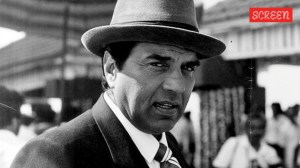The triangular balance of people’s power
I warmly welcome you all to the symposium on ‘‘The Relationship between the Legislature and the Judiciary’’. The theme o...

I warmly welcome you all to the symposium on ‘‘The Relationship between the Legislature and the Judiciary’’. The theme of today’s symposium is of crucial importance for the proper functioning of our democratic set-up. The issue has been discussed on several occasions. I am glad that yet another opportunity has come to us to deliberate on the issue as it is essential to keep in mind the importance of the concept of separation of powers, which is one of the basic features of our Constitution.
Parliamentary democracy, which is the basic foundation of our constitutional set-up, pre-supposes the sovereignty of the people. In the exercise of sovereign power, the people of India have given to themselves the Constitution, which constitutes India into a sovereign, socialist, secular and democratic Republic to secure to the citizens of the country justice, liberty, equality and fraternity.
As a pre-requisite for a functional parliamentary democracy, the Constitution of India has provided for separation of powers for securing the basic rights of the people and has consciously introduced a scheme of checks and balances in the exercise of powers, with the very important object of ensuring that power is not concentrated in any particular organ, which can assume undesirable proportion. Functional distribution of powers amongst various organs of the Government, viz. the Executive, Legislature and Judiciary, is the characteristic feature of parliamentary democracy and is essential to save the people from arbitrary action and oppressive rule.
The fundamental concept of democracy is that it is antithetical to arbitrariness and despotism and is based on the principles of accountability. Accountability provides the life blood to any democratic set-up. Any authority in a democracy, which is not ultimately accountable to the people, is prone to assume unregulated and uncontrolled power, based on its own predilections, as it assumes to be not answerable to anybody else for its action.
We should bear in mind that the Constitution, while subjecting all the organs of the State to its overriding authority, did not give any unchecked power to any organ. The three principal organs are expected to work in harmony, each respecting the authority of the other and without trespassing.
What is important to bear in mind is that there is a symbiotic relationship between different institutions of Government in a democracy. If we do anything that will undermine the effectiveness of any of these institutions, it will have its adverse impact on the system as a whole, ultimately undermining the effectiveness of the State itself. It is, therefore, imperative for all of us to work together creating conditions for the harmonious functioning of all the institutions, keeping the larger public good in view.
Looked at from this angle, there is no reason why there should be any tension among the organs while performing their designated tasks and within their specified area, for the goals of all the three are the same, which is: achieving the objectives of the Constitution for the benefit of the society. The Legislature, the Executive and the Judiciary owe equal responsibility for strengthening the edifice of a just and fair system. Their roles are supplementary and complementary to each other. They are not envisaged to be competing centres of power. Each has to show respect for the specific role of the other in the governance of the country and ultimately towards the well-being of the real masters — the people and should not encroach into each other’s territory on their own subjective interpretation as to what their powers are. There is no superior organ inter se.
As the custodians of the interests of the entire nation, they are expected to observe very high standards of integrity, probity and rectitude. The ethical values that permeate the three organs of the State have a deep and lasting impact on the character, credibility and creativity at different levels of the society. They have to work as an integrating force, protecting as well as disciplining the diverse interests and forces of the society in mutual respect and civility.
As already stated and to summarise, all the organs of the State are guided by and owe their powers to the Constitutional provisions. Our Constitution provides for and contemplates harmonious relationship for each organ operating within its own territory. Supremacy of the Parliament in its own sphere is as the Constitution provides and it does not depend upon any concession by any authority, nor upon the interpretation by any authority as to what it means. Parliament represents the sovereign will of the people, and the people are the masters, they act through their chosen representatives in Parliament.
Except as expressly permitted by the Constitution, which I have mentioned already, no authority should assume the power to question or nullify Parliament’s decision or action as per the provision of the Constitution. Exercise of power by any authority should not disturb the Constitutional balance and create tension in the body politic and uncertainty amongst the people.
I am sure these issues will be discussed in a comprehensive manner so that deliberations here will not only help the parliamentarians but all the authorities whose powers depend on the Constitutional provisions.





- 01
- 02
- 03
- 04
- 05


























